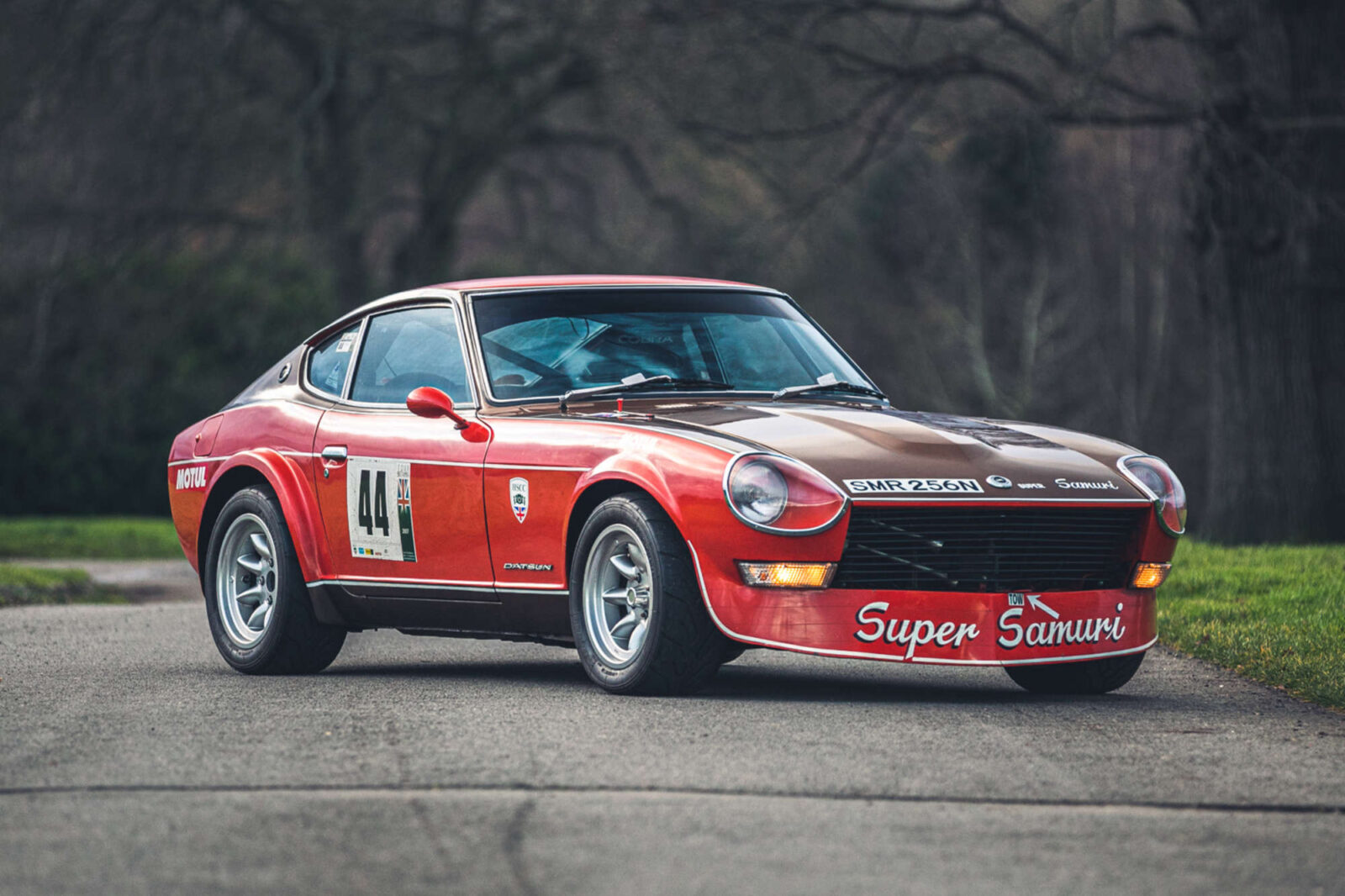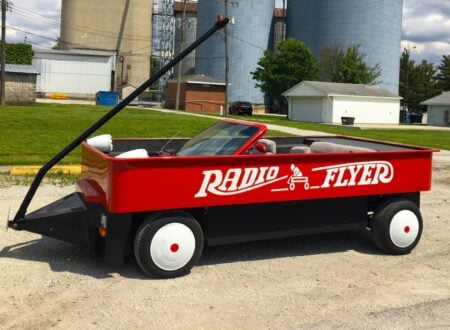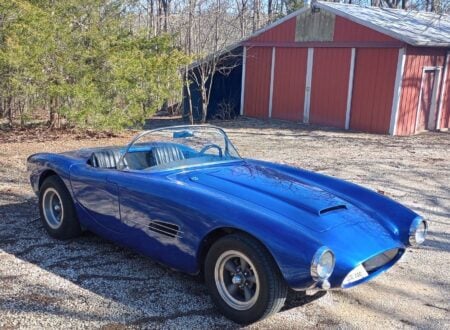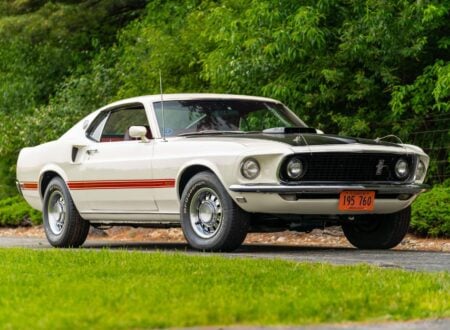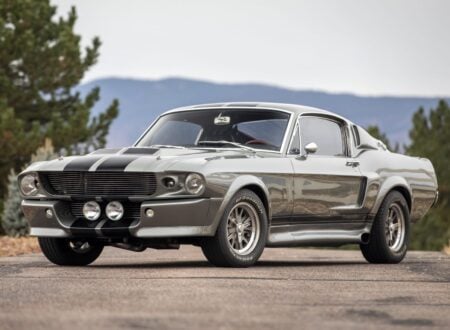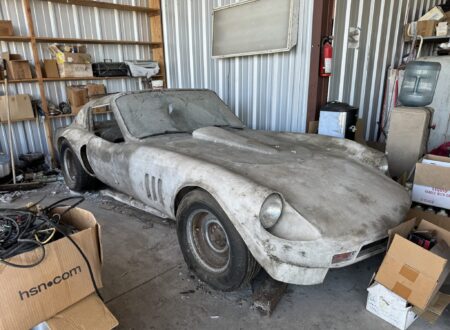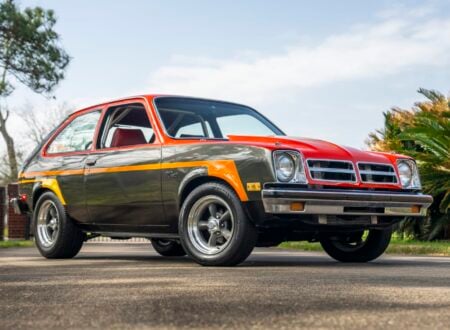This Datsun 240Z has a remarkable history, it was bought new by a British Army Captain while on a tour of duty in Cyprus and not long after he was ambushed by insurgents resulting in a bullet hole in the rear deck.
The car was shipped back to the UK and the next owner took it in to the legendary British Datsun tuner Spike Anderson for conversion to “fast road” Samuri specification at the end of 1974.
The owner then entered the Samuri 240Z in a series of production car races before dropping it into a ditch on the way home one night and parking the car up in a barn where it would remain untouched for years.
The Datsun 240Z
The Datsun 240Z is one of the most beloved Japanese cars of its era. It combined beautiful styling with excellent performance by the standards of the era, making it one of the best value sports cars in the early 1970s.
The original styling of concept was drawn up by Count Albrecht Goertz for Datsun, he used cars like the Jaguar E-Type and the Porsche 911 for inspiration, and he created a style language for Datsun/Nissan that the company is still using to this day.
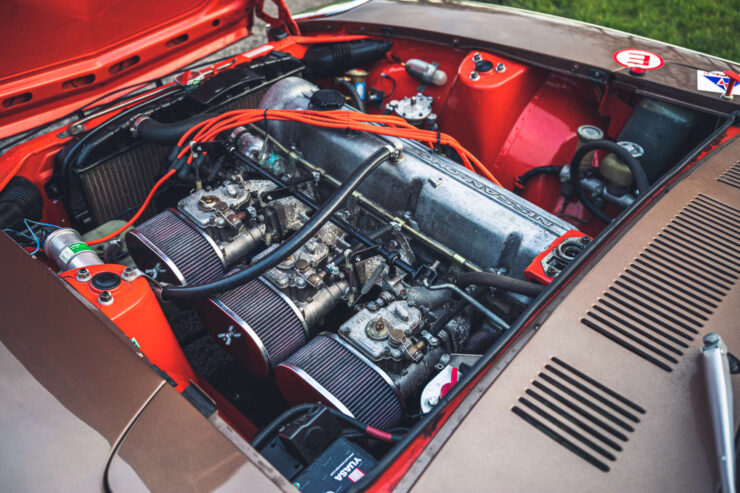
Above Image: This car’s engine has been completely reworked, it now produces over 180 bhp in part thanks to triple Weber 45DCOE carburetors.
Under the skin of the steel unibody the Datsun 240Z features independent suspension all round with MacPherson Struts up front and Chapman-links in the rear.
The car has rack and pinion steering, front disc brakes, a 5-speed gearbox, and a 2.4 litre, straight six, overhead-cam engine developing 150 bhp and giving the car a 0 to 60 time of 8 seconds with a top speed of 125 mph.
The 240Z was introduced into the American market in 1970 and it sold well until 1973, it was replaced by the Datsun 260Z in 1974 however this was mostly the same car with a larger engine. The 260Z would be succeeded by the 280ZX, the 300ZX, the 350Z, the 370Z, and in late 2020 the Nissan Z Proto was unveiled which bears a striking resemblance to the original 240Z.
The Datsun 240Z “Super Samuri” Shown Here
Eventually after spending many years in the barn, this car was rescued by none other than James Morris, a marque expert and the author of the Haynes Super Profile books about the Datsun 240Z/260Z/280Z.
In 1997/1998 a full restoration was carried out by Morris and rally-driver and “Z” specialist, Kevin Bristow – the project was guided by Spike Anderson himself.
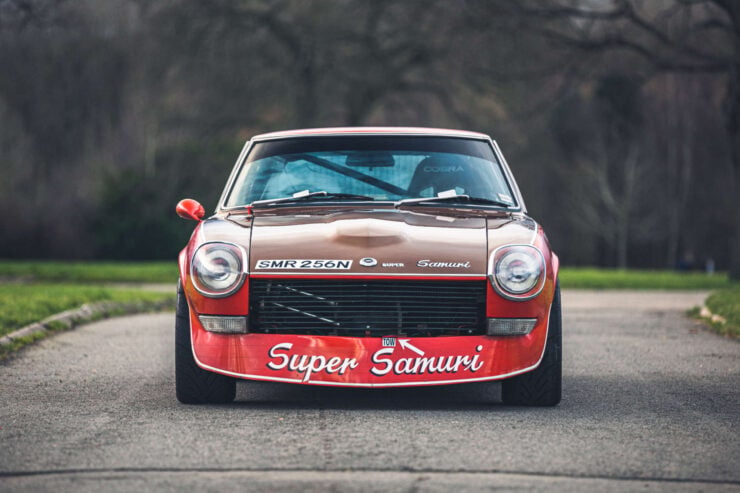
Above Image: As a “road race” specification Super Samuri the Datsun wears a unique bodykit, it’s been de-bumpered, and it has covered headlights.
During this restoration Spike Anderson assisted the two men in upgrading the car to “road race” Super Samuri specification – up from its original “fast road” Samuri specification. It’s important to note that the spelling “Samuri” was chosen as it wasn’t possible to trademark “Samurai” at the time due to the common usage of the word.
In the car’s history file is a document signed by Spike confirming that this car was built by Samuri Conversions as a fast-road Samuri for Eddie Stephens. It also confirms that he assisted in the Morris/Bristow restoration to “road race” Super Samuri specification in the late 1990s.
These documents are important as there are a number of non-original cars around, and it can be difficult to spot a fake.
There is no bigger name in the world of British Z-car tuning than Spike Anderson, he founded the Samuri Motor Company in the 1970s to provide high performance rebuilds and performance parts for Datsuns and became a Carroll Shelby-like character.
Anderson had started out in the world of tuning working for BMC tuning firm Broadspeed in the 1960s, mainly working on Minis and Big Healeys for competition. He was well-known for focussing not just on the engines but on the whole performance package, so that the cars were faster, better in the corners, and better able to slow down.
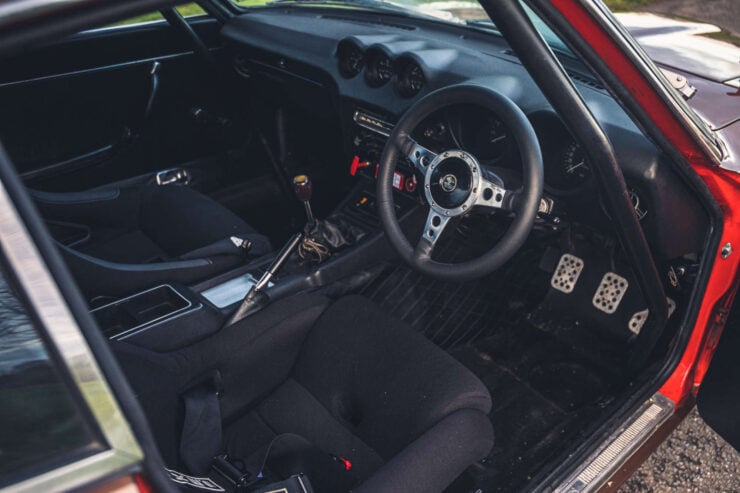
Above Image: The interior of the car is set up for both road and track use, with race seats and harnesses, a roll cage, and a fire suppression system.
This conversion to “road race” Super Samuri specification on the car you see here is highly detailed, however the major work completed included an engine over-bore to 86mm for a capacity of 2,565cc, a gas-flowed big-valve head, a “works” high-performance cam, a Mangoletsi manifold, triple Weber 45DCOE carburetors, a heavy-duty transmission, and uprated brakes/suspension.
The external changes to the car are immediately noticeable, it’s been de-bumpered, fitted with extended wheel arches and spoilers, and finished in the correct Super Samuri livery with hand-applied signwriting. The car also has covered headlights, a roll bar, racing seats with harnesses, and an internal fire suppression system.
In its current trim this car is producing 183.1 bhp at 6,300 rpm as tested on the rolling-road at BD Engineering at Newington. It’s showing just 5,821 miles on the odometer and it’s road registered in the United Kingdom.
If you’d like to read more about it or register to bid you can click here to visit the listing on Silverstone Auctions, it’s due to roll across the auction block on Saturday the 27th of March and at the time of writing there’s no price estimate.
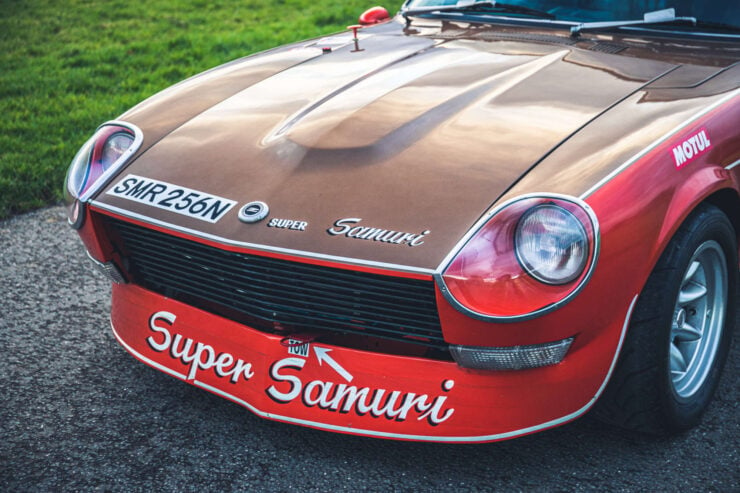
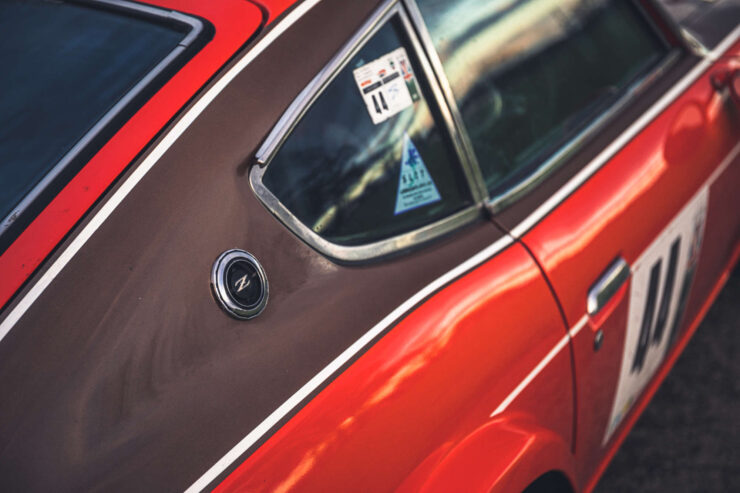
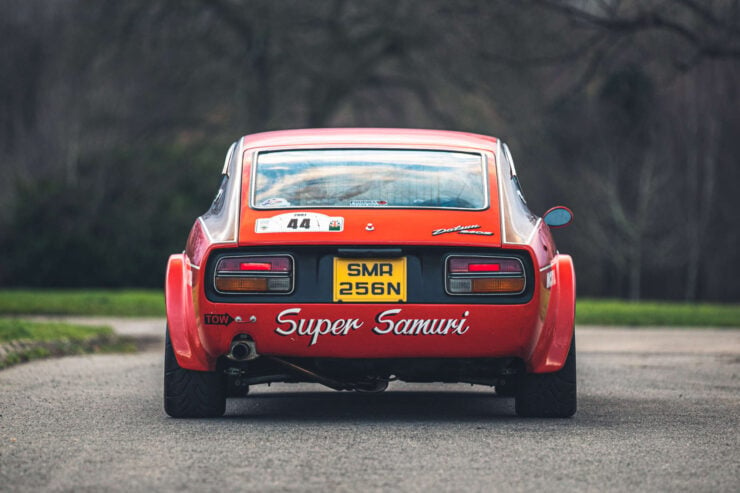
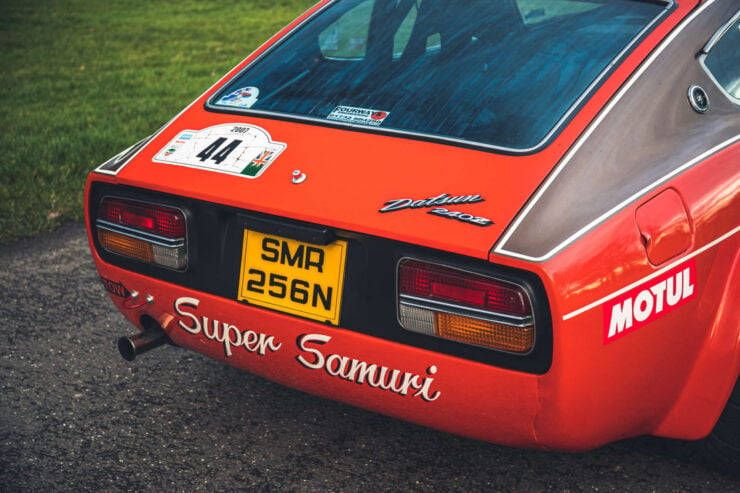
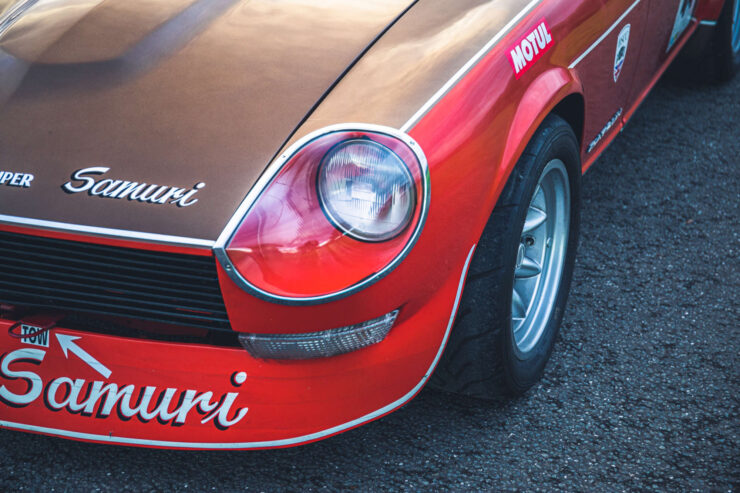
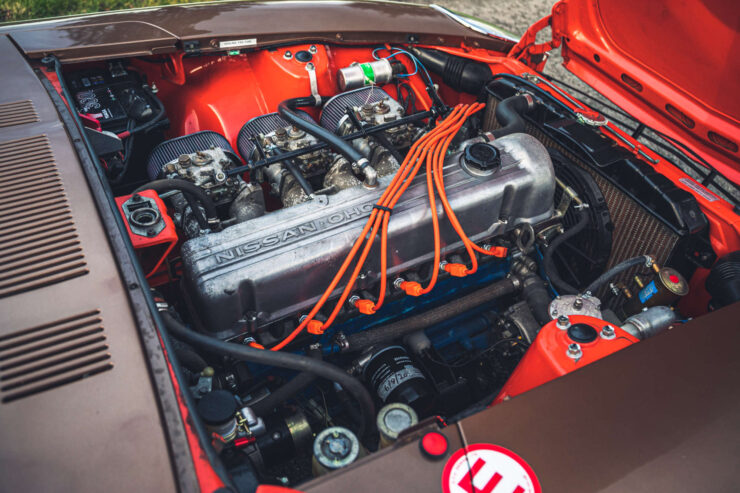
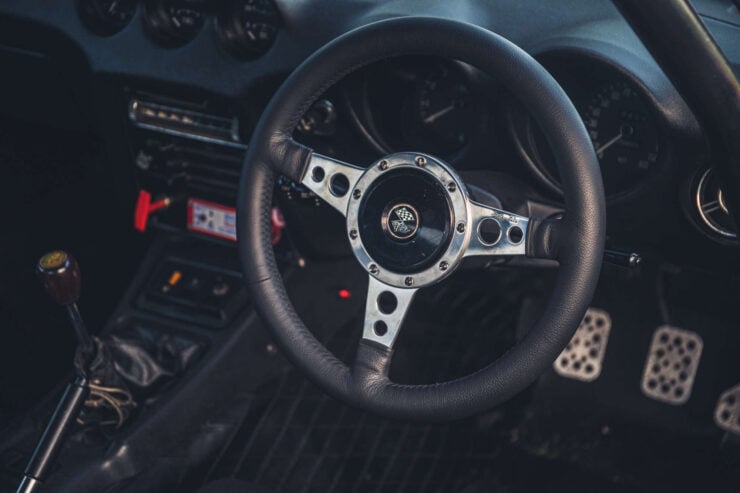
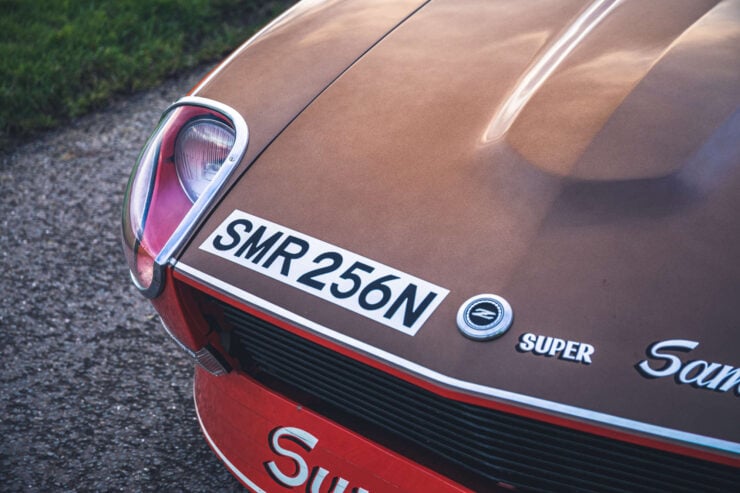
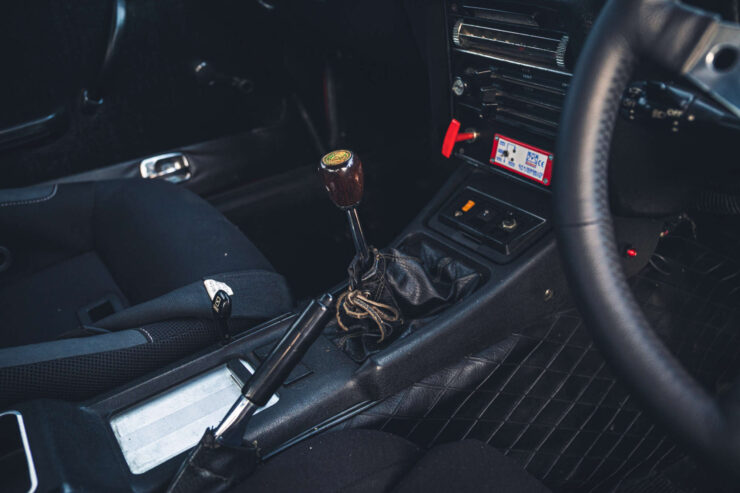
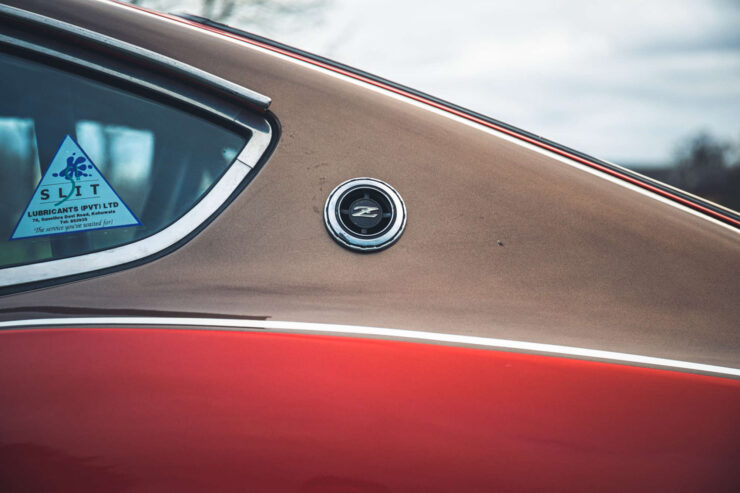
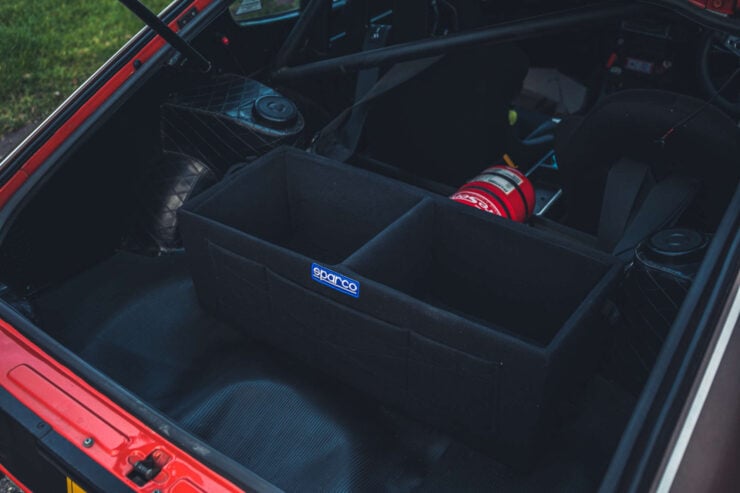
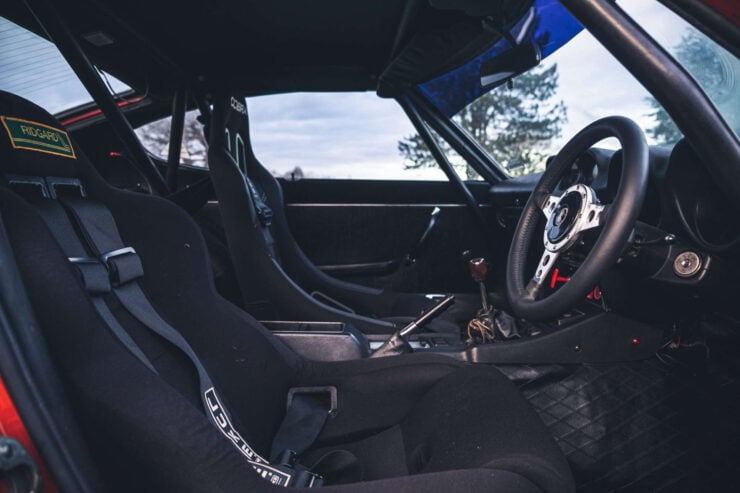
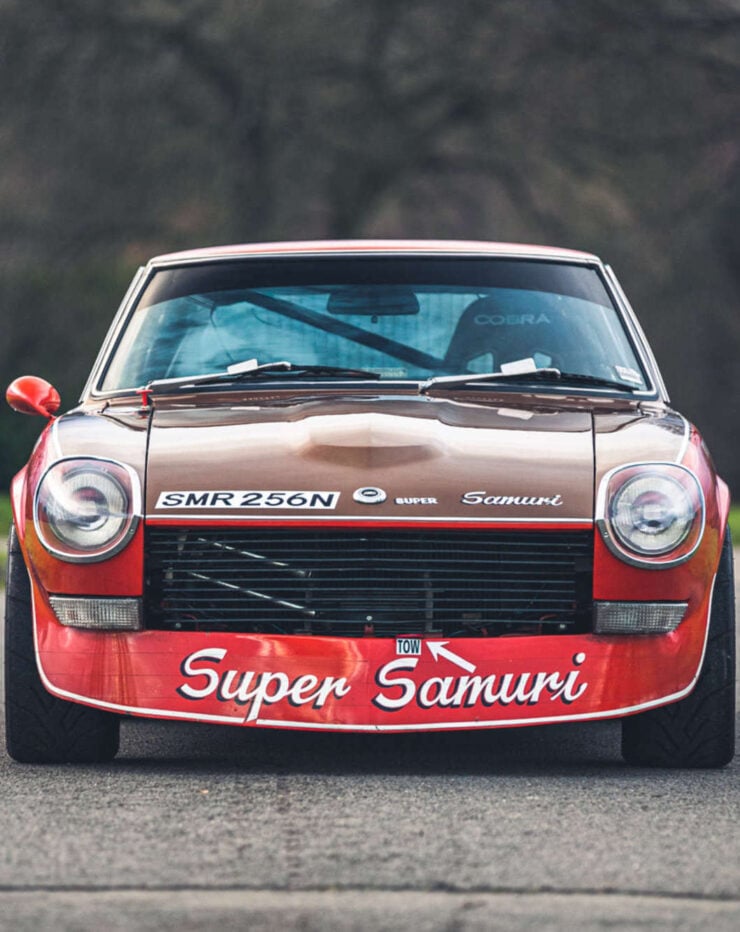
Images courtesy of Silverstone Auctions

